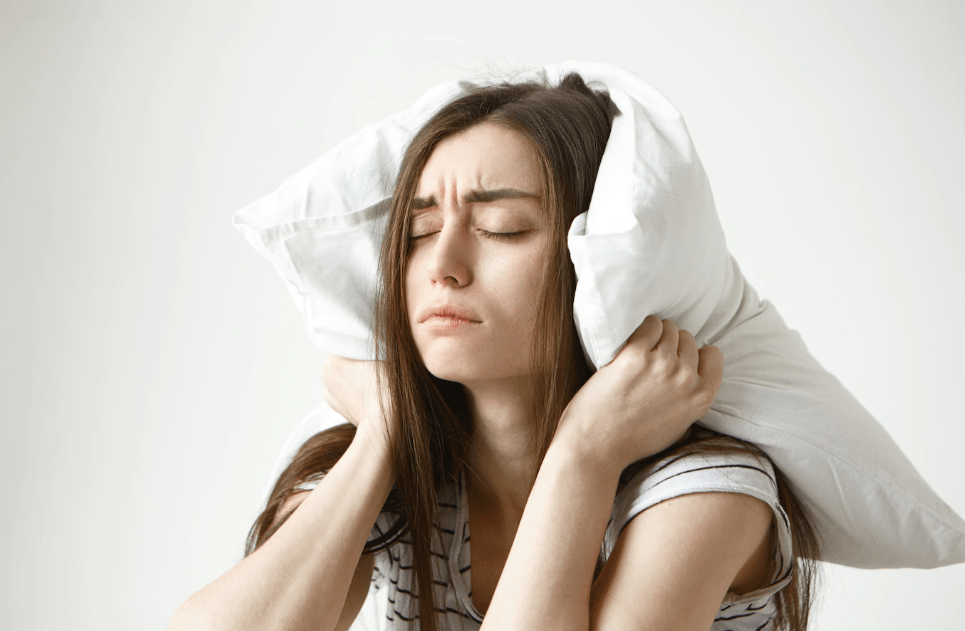
Sleeplessness and Body Aches
Most people who wake up with muscle pain in the mornings will blame their mattress. Sleeplessness and body aches But it might not be your sleeping environment that’s causing muscle pain while sleeping. Surprisingly, not getting enough sleep can be the main reason for their pain. Studies have shown that there’s a clear link between sleep deprivation and pain, and, in particular, that many people suffering from chronic back pain and muscle aches do not have healthy sleeping patterns.
Many types of research show that insufficient sleep and low
quality sleep increases the risk of developing widespread pain, particularly as we age. A three-year study carried out by researchers at Keele University in the UK found that non-refreshing sleep was the factor most strongly linked with the development of pain that was not linked to specific sources. Another study into adult women suffering from fibromyalgia found that there was a strong link between sleep problems and the risk of developing the condition. So the evidence is clear that there’s a clear link between sleep quality and pain of all kinds and not just muscle aches. Sleeping in the wrong position or on a bad mattress is not necessarily to blame. Sleeplessness and body But how exactly can a lack of sleep cause muscle and joint pain? There are three main reasons at play:
1. Poor sleep decreases pain tolerance.
2. Poor sleep increases the intensity of pain. 3. Poor sleep increases your risk of developing painful chronic conditions. Scientists do not yet fully understand the link between poor sleep quality and these causes of increased pain, but it’s thought that it may be due to changes in the nervous system when the body doesn’t get enough sleep. These changes cause oversensitivity, meaning that our pain tolerance is lowered.
Lack of sleep can also cause inflammation of the body, which will often result in muscle aches and pains
and can exacerbate inflammatory conditions such as arthritis. Insomnia is also known to impair athletic performance and increase wear and tear which can increase the risk of muscle and joint injuries due to sports, or even an everyday activity such as running to catch a bus. The body’s healing processes are most active while you are sleeping. if you’re recovering from a soft-tissue injury, not getting enough sleep may mean you need a longer time to recover. It’s easy to see how many people can end up in a vicious cycle: You can’t get a good night’s sleep due to pain. You then wake up exhausted the next day and even more stiff and sore because you’ve not had enough sleep. And so the cycle continues. If you’re experiencing muscle pain at night when you’re trying to sleep, there may be several reasons for this.
Causes of pain might include:
* Muscle or joint injury * Chronic conditions such as arthritis * Poor posture or the non-ergonomic working environment during the day * Body muscle weaknesses and imbalances. * Overtraining for sports
It’s normal to feel a bit stiff at night if you’ve spent the day doing a lot of physical activity you’re not used to.
Relieving pains :
Aches and pains tend to increase as we age, but muscle pain when sleeping isn’t an inevitable part of getting older. Anything that can help you to improve your muscle strength and flexibility and improves your immunity can help you get rid of such pains. The need for natural supplements arise here, which can heal your body, prevents the wear and tear of muscles, reverse the aging process, reduce inflammation and provide essential nutrients to the body for healthy and active
life.
References
1.https://www.wphphysio.com.au/post/can-lack-of sleep-cause-muscle-and-joint-pain
2. https://www.scienceabc.com/eyeopeners/why–does sleep-deprivation-cause-body-ache.html
